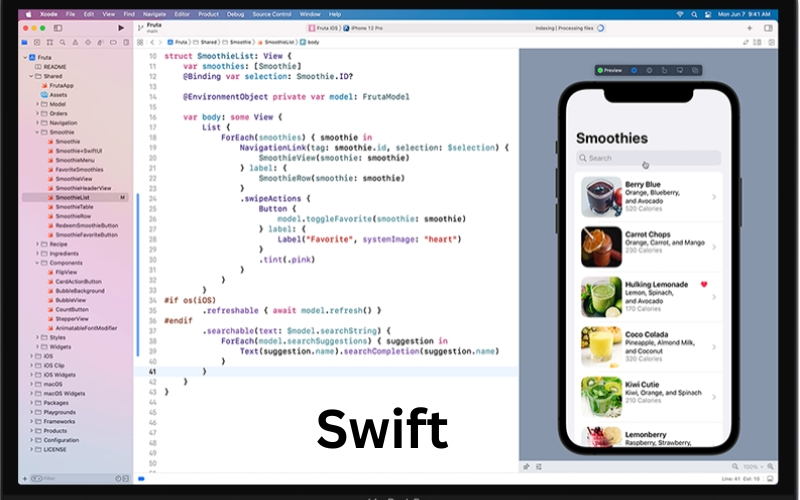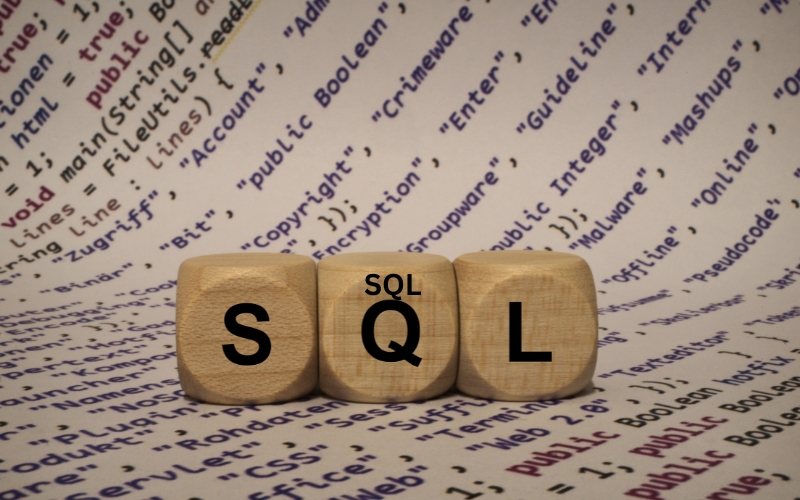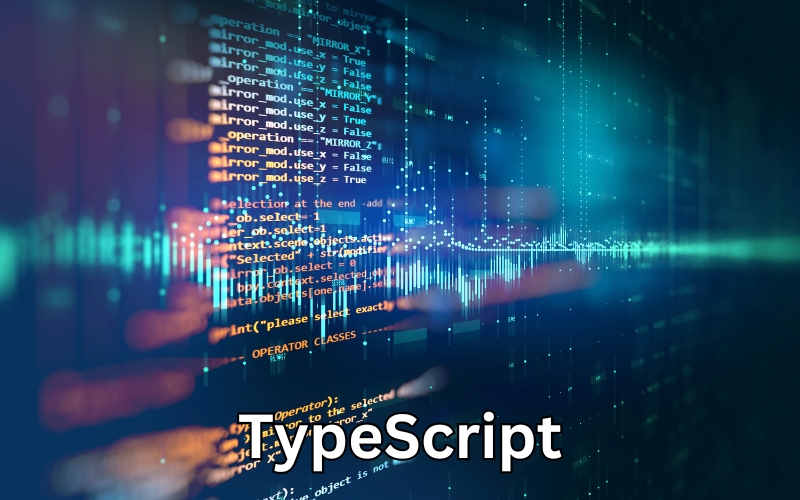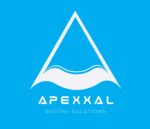
Introduction
The world is constantly evolving, and the tools we use to navigate it need to keep pace. In the ever-changing realm of technology, programming languages are the building blocks that shape our digital experiences. But with a vast array of options available, choosing the right language to invest your time and energy in can feel daunting.
This blog post is your one-stop guide to the top 10 programming languages of the future. We’ll delve into their strengths, explore their applications, and highlight the key factors that make them future-proof. Whether you’re a seasoned programmer or just starting your coding journey, this guide will equip you with the knowledge to make informed decisions about the languages that will empower you to thrive in the tech landscape of tomorrow.
Table of Contents
Top 10 Programming Languages of the Future
Python
Python’s popularity continues to soar, thanks to its:

- Readability: Python’s syntax is clear and concise, resembling natural language more than complex code. This makes it easy to learn and understand, even for beginners with no prior programming experience.
- Extensive Libraries: Python boasts a vast collection of open-source libraries for various tasks, from data science and machine learning to web development and automation. This rich ecosystem allows you to quickly get started on projects without reinventing the wheel. Libraries like NumPy, Pandas, and Matplotlib are essential tools for data manipulation and visualization, while Django and Flask provide frameworks for building robust web applications.
- Dominance in Data Science and AI: Python is the de facto standard language in data science and artificial intelligence. Frameworks like TensorFlow and PyTorch are built on Python, making it essential for anyone working in these fields.
Benefits of Learning Python:
- High Demand: Python developers are highly sought-after across various industries, from tech giants like Google and Facebook to startups and research institutions.
- Versatility: Python’s applicability extends to web development, data analysis, scripting, and more, making it a valuable skill for well-rounded programmers. Whether you’re interested in building websites, analyzing data, or automating tasks, Python can be your one-stop shop. Python is recognized as one of the top 10 programming languages of the future.
- Relatively Easy to Learn: Compared to other languages with steeper learning curves, Python’s beginner-friendly syntax makes it a great starting point for new programmers. This allows you to focus on core programming concepts without getting bogged down in complex syntax rules.
JavaScript
JavaScript’s reign over web development is undisputed. But its reach extends far beyond the browser. Frameworks like Node.js have opened doors for server-side development, making JavaScript a truly versatile language.

- Ubiquitous in Web Development: JavaScript is the lifeblood of modern web development. It’s responsible for creating dynamic and interactive elements that make web pages engaging and user-friendly. Without JavaScript, web browsers websites would be static and one-dimensional.
- Ever-Evolving Ecosystem: The JavaScript ecosystem is constantly growing, with new frameworks and libraries emerging all the time. This continuous innovation ensures JavaScript stays relevant and adapts to the ever-changing needs of web development. Popular frameworks like React, Angular, and Vue.js offer structured approaches to building complex web applications.
- Full-Stack Potential: With the rise of Node.js, JavaScript can now be used for both front-end (client-side) and back-end (server-side) development. This allows you to build complete web applications using a single language, streamlining the development process.
Benefits of Learning JavaScript:
- High Demand: As we look forward to the Top 10 Programming Languages of the Future, JavaScript remains a cornerstone for creating dynamic and interactive web experiences.
- Wide Applicability: JavaScript’s use cases extend beyond web development. You can use it for mobile app development with frameworks like React Native, game development with libraries like Phaser, and even server-side scripting with Node.js. This versatility makes JavaScript a valuable skill for well-rounded programmers.
- Relatively Easy to Learn: While JavaScript has its complexities, its basic concepts are approachable for beginners. With a clear understanding of JavaScript fundamentals, you can quickly start creating interactive web elements and progress to more advanced applications.
C++
For tasks demanding raw speed and control, C++ remains the undisputed champion. Video games, high-performance computing simulations, and embedded systems that power everything from self-driving cars to medical devices all rely heavily on C++. While its learning curve is steeper than some languages, C++ empowers programmers to create efficient and powerful applications.

- Unmatched Performance: C++ offers exceptional speed and control over hardware, making it the language of choice for applications where every millisecond counts. Games rendering complex 3D environments, scientific simulations modeling real-world phenomena, and financial algorithms processing massive datasets all benefit from C++’s raw performance. C++ stands strong among the Top 10 Programming Languages of the Future.
- Fine-Grained Memory Management: Unlike higher-level languages that handle memory management automatically, C++ gives programmers precise control over memory allocation and deallocation. This allows for memory optimization, which is essential for performance-critical applications.
- Legacy Codebase and Future Innovation: A vast amount of existing code, particularly in system programming and performance-driven domains, is written in C++. Understanding C++ equips you to maintain and extend these critical systems while also positioning you for future advancements in areas like high-frequency trading and real-time robotics.
Benefits of Learning C++:
- Develop High-Performance Applications: If you’re passionate about creating cutting-edge software that pushes the boundaries of speed and efficiency, C++ is the language for you.
- In-Demand Skill in Niche Fields: C++ programmers are valuable assets in industries like gaming development, scientific computing, and embedded systems development. The demand for skilled C++ developers remains high due to the continued reliance on this language in these specialized areas.
- Strong Foundation in Programming Concepts: Learning C++ teaches you core programming concepts like memory management, object-oriented programming, and efficient algorithms. This strong foundation translates well to other programming languages, making you a more well-rounded programmer.
Kotlin
Kotlin has become the darling of Android development. Replacing Java as the primary language for Android apps, Kotlin offers several advantages that streamline development and enhance code quality.

- Concise and Readable Syntax: Kotlin, one of the Top 10 Programming Languages of the Future, boasts a cleaner and more readable syntax compared to Java. This reduces development time and improves code maintainability, making collaboration easier for teams.
- Improved Null Safety: One of Kotlin’s biggest strengths is its focus on null safety. By eliminating the possibility of null pointer exceptions, a common source of errors in Java, Kotlin leads to more robust and stable applications. Kotlin is poised to be one of the top 10 programming languages of the future.
- Interoperability with Java: Kotlin seamlessly integrates with existing Java code, allowing for a smooth transition for developers already familiar with the Android platform. This protects existing code investments while enabling developers to leverage Kotlin’s benefits in new projects.
Benefits of Learning Kotlin:
- Become an In-Demand Android Developer: With Kotlin becoming the standard for Android app development, skilled Kotlin developers are highly sought-after by companies building mobile apps.
- Write cleaner and more reliable code: Kotlin’s emphasis on readability and null safety helps you write code that’s easier to understand, and maintain, and less prone to errors.
- Smoother Transition for Java Developers: If you already have experience with Java, Kotlin’s familiarity and interoperability make it an easy language to pick up and leverage on the Android platform.
HTML/CSS
While not strictly programming languages in the traditional sense, HTML and CSS are the essential building blocks of the web. They work together to define the structure and visual style of web pages, shaping the user experience we encounter every time we browse the internet.

- HTML: The Cornerstone of Web Content HTML, or Hypertext Markup Language, provides the foundation for web pages. It defines the structure of a page, including headings, paragraphs, images, and links. Without HTML, web pages would be nothing but plain text.
- CSS: Bringing Style to the Web:Cascading Style Sheets (CSS) breathe life into web pages by defining their visual appearance. CSS controls everything from fonts and colors to layouts and animations. It’s what transforms a basic HTML structure into a visually appealing and interactive web experience. CSS is considered crucial in the context of the “Top 10 Programming Languages of the Future”, as it enhances user engagement and interface aesthetics.
Benefits of Learning HTML and CSS:
- Essential Skill for Web Developers: Whether you’re aiming to become a web developer, front-end developer, or even a back-end developer, understanding HTML and CSS is an absolute necessity. They are the fundamental tools for creating any website.
- Solid Foundation for Further Learning: A strong grasp of HTML and CSS paves the way for learning more advanced web development technologies like JavaScript frameworks and back-end languages. These foundational skills will serve you well as you explore different areas of web development.
- Relatively Easy to Learn: Compared to more complex programming languages, HTML and CSS have a gentler learning curve. This makes them a great starting point for beginners to enter the world of web development.
Go (Golang)
Developed by Google, Go (Golang) is a newcomer to the scene, but it’s making a big splash. With its focus on simplicity, concurrency features, and suitability for cloud-native development, Go is well-positioned for the future of software development.

- Simplicity and Readability: Go prioritizes clean and concise syntax, making it one of the Top 10 Programming Languages of the Future. This focus on simplicity reduces development time and fosters collaboration within teams.
- Concurrency for Scalable Applications: Go excels at handling concurrent tasks efficiently. This makes it ideal for building scalable web applications and microservices that can handle a high volume of users and requests. Concurrency allows for tasks to run simultaneously without bottlenecks, improving application performance.
- Cloud-Native Development: Go’s lightweight nature and built-in concurrency features make it a perfect fit for developing cloud-native applications. These are applications designed to run and scale on cloud platforms, a growing trend in modern software development.
Benefits of Learning to Go:
- High Demand in Cloud Computing: As cloud adoption continues to soar, skilled Go developers are increasingly sought-after to build and maintain cloud-based applications.
- Increased Developer Productivity: Go’s simplicity and focus on concurrency streamline the development process, allowing you to write code faster and with fewer errors.
- Future-Proof Skill for Scalable Development: Go’s strengths in concurrency and cloud-native development position you for success in building scalable applications that will power the future.
Swift
Swift is the brainchild of Apple, designed specifically to build modern iOS and macOS applications. Swift offers a clean syntax, powerful features, and a focus on safety, making it a favorite among developers in the Apple ecosystem.

- Modern and Readable Syntax: Swift boasts a clean and concise syntax that feels natural to write. This makes it easier to learn and maintain compared to older languages like Objective-C, previously used for Apple app development. Swift is recognized as one of the top 10 programming languages of the future.
- Powerful Features for Modern Applications: Swift provides features like closures, generics, and powerful error handling, empowering developers to build feature-rich and efficient applications for Apple devices.
- Focus on Safety and Security: Swift prioritizes code safety with features like memory management and type safety. This reduces the risk of errors and crashes, leading to more stable and secure applications.
Benefits of Learning Swift:
- High Demand in Apple Development: As Apple devices remain hugely popular, skilled Swift developers are in high demand to create innovative apps for the iPhone, iPad, Mac, and Apple Watch.
- Future-Proof Skill for the Apple Ecosystem: Swift is the official language for Apple app development, ensuring its continued relevance for years to come.
- Clean and Efficient Development: Swift’s focus on readability and safety allows you to write cleaner code with fewer bugs, leading to a more enjoyable and productive development experience.
Rust
Rust is a unique language gaining significant traction for its focus on two key aspects: memory safety and performance. While its learning curve can be steeper than some languages, Rust empowers programmers to build secure, reliable, and blazing-fast applications.

- Memory Safety by Design: Rust prioritizes memory safety at its core, eliminating the possibility of memory leaks and dangling pointers—common causes of crashes in other languages. This ensures exceptional stability and security for your applications.
- Unmatched Performance: Rust’s focus on memory management and control over hardware resources translates to exceptional performance. It rivals languages like C++ in speed while offering the memory safety advantages that C++ lacks.
- Future-Proof for Systems Programming: Rust’s emphasis on performance and memory safety makes it a perfect fit for systems programming, a field that underpins critical infrastructure and high-performance applications. As these areas continue to evolve, Rust is well-positioned for the future, making it a contender for the Top 10 Programming Languages of the Future.
Benefits of Learning Rust:
- Build Secure and Reliable Systems: With Rust, you can create applications with exceptional memory safety and stability, minimizing the risk of crashes and security vulnerabilities.
- Unlock High-Performance Applications: Rust’s performance capabilities make it ideal for developing resource-intensive applications where speed and efficiency are critical.
- Future-Proof Skill for Systems Programming: As the demand for secure and performant systems grows, skilled Rust developers, listed among the Top 10 Programming Languages of the Future, will be highly sought-after in areas like embedded systems, operating systems, and high-frequency trading.
SQL
Data fuels modern applications, and SQL (Structured Query Language) is essential for unlocking its potential. Used to interact with relational databases, SQL empowers you to retrieve, manipulate, and analyze data stored in these systems. Explore how SQL, along with the Top 10 Programming Languages of the Future, drives innovation and shapes the technology landscape.

- Universal Database Language: SQL is the industry standard for querying relational databases. Regardless of the specific database management system (DBMS) you use, understanding SQL allows you to communicate with and extract valuable insights from data.
- Essential for Data Analysis and Reporting: In today’s data-driven world, SQL is a fundamental skill for data analysts, data scientists, and anyone working with data. It allows you to query databases, generate reports, and gain insights that inform decision-making.
- Relatively Easy to Learn: Compared to complex programming languages, SQL has a simpler syntax that’s easier to grasp. This makes it a great starting point for beginners venturing into the world of data analysis.
Benefits of Learning SQL
- Unlock the Power of Data: With SQL, you can transform raw data into actionable insights, empowering businesses to make data-driven decisions and gain a competitive edge.
- In-Demand Skill Across Industries: The ability to work with data is valuable in nearly every industry. From finance and marketing to healthcare and scientific research, skilled SQL users are in high demand.
- Opens doors to data science careers: If you’re interested in data science, a strong foundation in SQL is essential. It serves as a stepping stone to more advanced data analysis tools and techniques.
TypeScript
TypeScript takes JavaScript, the king of the web, to the next level. It’s a superset of JavaScript, adding optional static typing for improved maintainability, scalability, and developer experience.

- Enhanced JavaScript with Static Typing: TypeScript offers all the functionality of JavaScript but with the added benefit of optional static typing. This allows you to define variable and function types, improving code readability, catching errors early in the development process, and making large codebases easier to manage.
- Smoother Integration with Large JavaScript Projects: TypeScript seamlessly integrates with existing JavaScript code, making it a perfect choice for gradually incorporating static typing into large-scale web applications. You can migrate code incrementally without rewriting everything from scratch.
- Strong Community and Ecosystem: TypeScript leverages the vast JavaScript community and ecosystem of libraries and frameworks. This ensures you have access to a wealth of resources and tools while enjoying the benefits of static typing.
Benefits of Learning TypeScript:
- Write cleaner and more maintainable code. Static typing in TypeScript helps prevent errors, improves code readability, and makes your code easier to understand for yourself and others working on the project.
- Boost developer productivity: Catching errors early in the development process with TypeScript saves you time and frustration compared to debugging errors in pure JavaScript after the code is written.
- Future-Proof Skill for Large-Scale Web Development: As web applications grow in complexity, TypeScript’s ability to handle large codebases with static typing makes it a valuable skill for future web development projects.
Why do These Languages Have a Future-Proof Potential?
The tech world is constantly evolving, and the programming languages we use need to keep pace. But with so many options available, it can be tough to know which ones will stay relevant in the years to come. Here’s what makes the Top 10 Programming Languages of the Future possess future-proof potential:
Focus on Skills, Not Syntax: The core concepts of programming—problem-solving, logic, and algorithm design—are timeless. While syntax differs between languages, these fundamental skills are transferable. Languages like Python and JavaScript with clear and concise syntax allow you to focus on core concepts without getting bogged down in complex grammar rules. This prepares you to adapt to new languages as they emerge. The 10 Most Promising Programming Languages for the Future
Addressing Modern Needs: Languages like Go and Rust are built with the cloud and high-performance computing in mind, which are growing trends. They offer features that specifically address these needs, making them well-suited for the technological landscape of tomorrow, as discussed in the context of the Top 10 Programming Languages of the Future.
Community and Industry Adoption: Languages with large, active communities benefit from continuous innovation and a wealth of learning resources. Popular languages like Python and JavaScript have vast ecosystems of libraries and frameworks, making them attractive choices for businesses and developers alike. Widespread industry adoption ensures a steady demand for skilled programmers in these languages.
Continuous Evolution: Languages like JavaScript and TypeScript are constantly evolving with new features and improvements. This ensures they stay relevant and adapt to the changing needs of web development.
Conclusion
The programming landscape is brimming with possibilities. By understanding the strengths and future-proof potential explored in the Top 10 Programming Languages of the Future, you can make informed decisions about your programming journey. Remember, the most important factor is your passion for coding and problem-solving. Choose a language that excites you and aligns with your career goals.
Don’t be afraid to experiment and learn multiple languages. The transferable skills you gain will make you a more well-rounded programmer. Focus on building a strong foundation in core programming concepts and embrace the ever-evolving nature of this exciting field.
FAQs
1. I’m a complete beginner. Which language should I start with?
For beginners, languages like Python or JavaScript are excellent choices. They offer clear syntax, vast learning resources, and applications in various fields.
2. I’m interested in web development. What languages should I focus on?
HTML, CSS, and JavaScript are the essential foundations for web development. Once you’re comfortable with these, consider exploring frameworks like React or Angular for building complex web applications.
3. I want to work on mobile apps. What language should I learn?
For native app development, Swift is the language of choice for iOS, and Kotlin is the primary language for Android. If you prefer cross-platform development, frameworks like React Native allow you to build apps for both iOS and Android using JavaScript.
4. What are some in-demand skills in the data science field?
Python is the dominant language in data science, with libraries like NumPy, Pandas, and TensorFlow forming the core data science toolkit. SQL is another essential skill for interacting with databases and retrieving data for analysis.
5. How can I stay updated on the latest trends in programming languages?
Following tech blogs, attending online courses, and participating in programming communities are great ways to stay informed about the latest advancements in programming languages and technologies.
Get In Touch
Get in touch with us to learn more and stay ahead in the programming world. Contact us now at +92-343-0030010, or visit Apexxal Digital Solutions for expert guidance and support.




